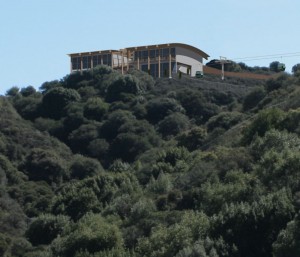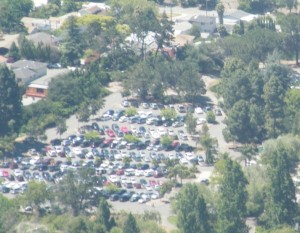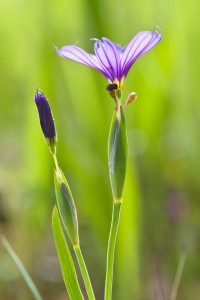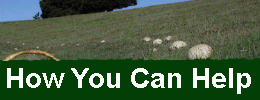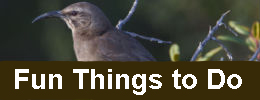Some people, touring Knowland Park for the first time, express astonishment at the idea that the City of Oakland has purposely NOT listed this wonderful park on its Parks and Recreation website list of city parks. We felt the same way when we discovered that the largest remaining open space owned by the city wasn’t listed anywhere, and that there was no signage to help people find the Park and enjoy it. Thinking it surely must be an oversight, we asked our city councilman about it, and he said he would look into it. However, despite repeated queries, we never got an answer. This was about four years ago.
Whose Offices Will be in the Planned Ridgetop Center?
And Couldn’t They Be Someplace Else?
The Oakland Zoo’s development plans for Knowland Park include offices—yes, offices– in the 34,000 square foot, 3 story central gondola terminal building, which is planned to also include a restaurant and gift shop. The whole thing will be perched atop the most sensitive and pristine area of the park, a ridge where the threatened Alameda whipsnake was trapped in surveys, where a statewide rare plant community of chaparral provides cover and habitat for many kinds of animals, and where scat from large predators is regularly found. Why, you might ask yourself, would a “conservation”-minded organization decide to build a huge structure in that particular location, rather than looking for a site closer to the existing Zoo or on already-disturbed land?
“Wisdom Sits in Places”: Knowland Park’s abiding meaning
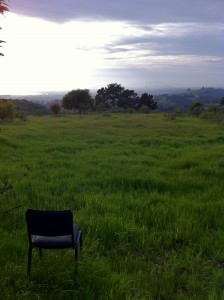 More than a decade ago, I read a book by the University of New Mexico anthropologist Keith Basso that made an enormous impression on me and forever changed the way I experience nature. Called Wisdom Sits in Places, it was a report of the authors’ several years spent studying the Apache culture of the southwestern U.S. One of its most profound contributions was to interpret the Apache relationship with place.
More than a decade ago, I read a book by the University of New Mexico anthropologist Keith Basso that made an enormous impression on me and forever changed the way I experience nature. Called Wisdom Sits in Places, it was a report of the authors’ several years spent studying the Apache culture of the southwestern U.S. One of its most profound contributions was to interpret the Apache relationship with place.
In many ways, it is impossible for those of us not raised within a culture to ever entirely understand it, so it is with caution that I approach trying to convey what was so immensely powerful about this little book. It’s also been many years now since it so impressed me, so it is possible that memory has embroidered my understanding. But the primary message I took from Basso’s reported conversations with tribal members and elders was that place matters –and it matters as more than mere location: Natural places reveal something to us about our relationships with the world and one another.
One huge hunk of Swiss Cheese: the “environmental report” for the Zoo’s “conservation” theme park
During the multiple public hearings leading up to City Council approval of the Zoo’s “conservation” theme park in June, 2011, we heard a lot of talk about the environmental review document for the proposed development. Waving around a City-prepared report that comprised hundreds of pages, some development enthusiasts claimed that the environmental impacts of the project had been subjected to an unusually thorough level of scrutiny. Well, don’t buy it. The problem is that in environmental review, it is quality—not quantity—that really matters. This report is one huge hunk of Swiss cheese: riddled with holes big enough to drive an elephant through.
Slow Nature: How the Slow Food movement is related to the effort to protect Knowland Park
The Bay Area is a hotspot for the Slow Food movement. Slow Food started in Italy, a movement aimed at countering the influence of Fast Food by encouraging people to take time to cook and eat meals at home, understand where their food comes from, maybe even grow some of it themselves or buy it from local growers. While everyone likes to grab a quick Fast Food bite once in awhile, Slow Food is about getting back something we lost in turning food into a cheap, high-calorie drive-thru commodity: the whole way that food centers communities and families through sharing the bounty of harvest, eating seasonal fruits and vegetables, cooking together, and talking around the table. It’s about really appreciating food, but also about appreciating our place as human beings—in families, communities, as inhabitants of the natural world that provides our food.
Save Oakland’s Oaks
Expansion Controversy
Search Our SIte
Blog Categories
Regular Bloggers
 Ruth Malone |
 Laura Baker |
 Jim Hanson |
 Mack Casterman |
We support Oakland's public spaces!
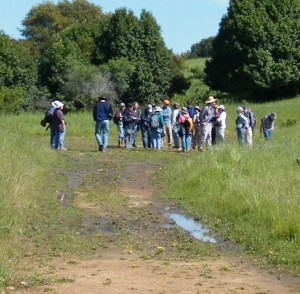
 Follow
Follow